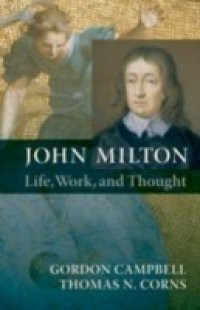This book re-examines scrupulously the writings and the life records of John Milton, in the context of a proper understanding of the recent developments in seventeenth-century historiography. Milton's thought has often been too simply described. The approach here is to interrogate more sceptically notions like puritanism, republicanism, radicalism, and dissent. A more complex story emerges, of Milton's culturally rich but ideologically conformist early decades, andof his radicalisation during the later years of Laudianism. We track the internal dynamics of English puritanism in the 1640s and the impact that has on his own convictions. In the 1650s Milton's thought and beliefs were reconciled to the role as public servant. In the 1660s a renewed confidencecarried him towards the completion of his greatest project, Paradise Lost, and his final years were ones of creative fulfilment and renewed political engagement. Amid the discontinuities occasioned by shifting political circumstance, by the exigencies of polemical context, and the diversity of genres in which he wrote, Milton emerged as a major political thinker and significant systematic theologian, as well as the most eloquent prose writer and most accomplished poet of the age. Amore human Milton appears in these pages, flawed, self-contractory, self-serving, arrogant, passionate, ruthless, ambitious, and cunning, as well as the literary genius who achieved so much.

